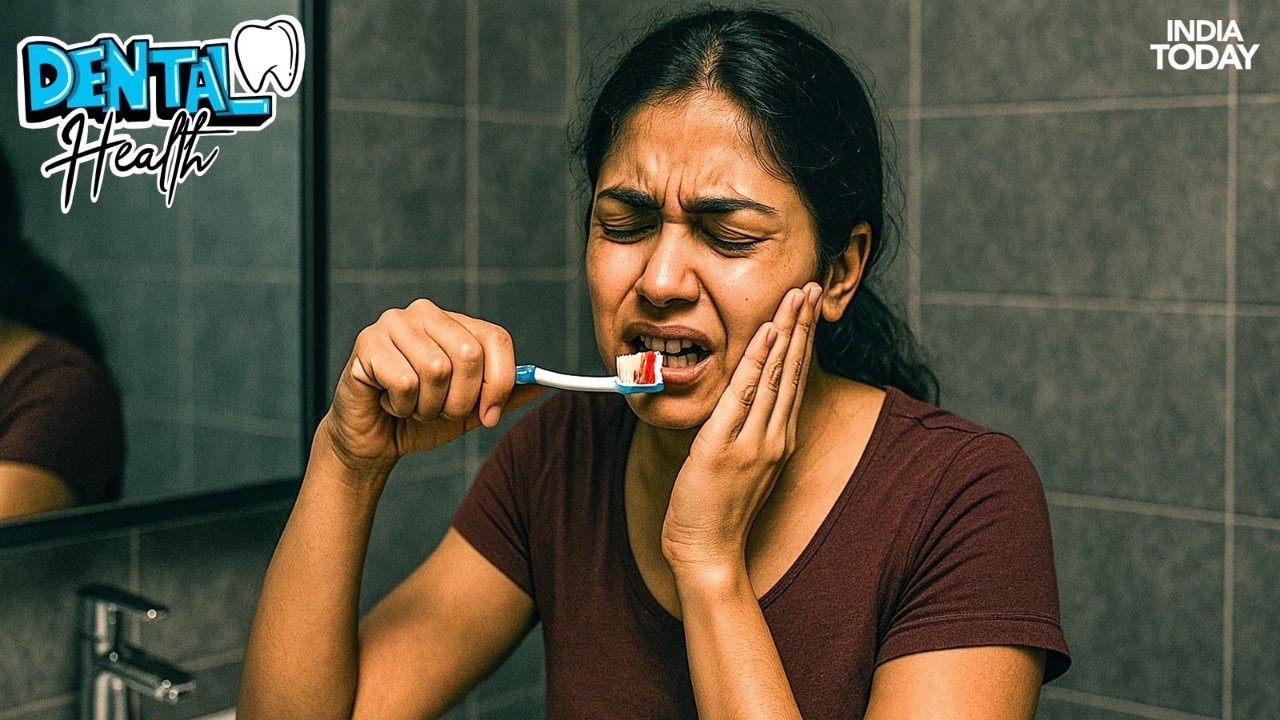Bleeding Gums: Causes, Cures, and When to Seek Help

Understanding the Significance of Bleeding Gums
Bleeding gums may seem like a minor issue, often dismissed as just a small amount of blood in the sink after brushing. However, dental professionals emphasize that this symptom can be a warning sign of more serious health problems. Gum disease is one of the most common yet overlooked health issues in India, affecting millions of people.
To gain insight into when gum bleeding should be taken seriously and how it can be prevented, experts have shared their perspectives. Dr. Tania Nijhawan, founder of Udana Wellness, highlights that bleeding gums should never be considered normal. She explains that while many people overlook this issue, it is actually the body’s way of signaling that something is wrong.
Early Warning Signs Often Ignored
Gum disease is a major public health concern in India, with studies suggesting that 95% of the population suffers from some form of periodontal disease. This widespread issue underscores the importance of recognizing early signs. Dr. Nijhawan points out that bleeding gums are often among the first indicators of gum disease.
She notes that individuals might notice a small amount of blood while brushing or flossing, which can easily be ignored. However, this is a signal that something is not right. In addition to bleeding, gums may appear redder than usual, feel tender, or become swollen. These symptoms are early warning signs, and addressing them at this stage can prevent more severe issues down the line.
Beyond Oral Hygiene: Hidden Triggers
While many associate gum bleeding with poor oral hygiene, the causes can be far more complex. Dr. Nijhawan explains that factors such as vitamin deficiencies, hormonal changes during pregnancy or menopause, certain medications, and underlying health conditions like diabetes or liver disease can make gums more fragile.
Lifestyle choices also play a significant role in exacerbating the condition. Smoking, stress, poor nutrition, and excessive alcohol consumption can weaken gums and slow the healing process. It is crucial to understand that bleeding gums may be an indicator of deeper health concerns rather than simply a result of neglect.
A Window Into Overall Health
Dentists and medical researchers increasingly recognize the connection between oral health and systemic diseases. Periodontal disease has been linked to heart problems, diabetes, and adverse pregnancy outcomes. Dr. Nijhawan warns that even though bleeding gums may seem minor, they should not be ignored.
If left untreated, gum inflammation can progress to periodontal disease, which affects more than just teeth and gums. It has been associated with heart disease, diabetes, and complications during pregnancy. The connection between oral health and overall well-being is clear, and ignoring persistent bleeding could mean missing early signs of more serious conditions.
Practical Remedies and Prevention
Preventing gum bleeding largely depends on consistent oral care and lifestyle choices. Dr. Nijhawan recommends simple daily habits that can significantly improve gum health. Brushing gently twice a day, flossing regularly, and visiting the dentist every six months are essential steps.
She emphasizes that oral health is closely tied to overall wellness. Eating nutritious foods, reducing sugar intake, staying hydrated, and managing stress all contribute to healthier gums. Maintaining a balanced intake of vitamins and minerals helps keep gums strong. These small changes can go a long way in preventing problems before they arise.
When to Seek Professional Help
Many people delay seeking professional help, hoping that bleeding gums will improve with home remedies. However, Dr. Nijhawan stresses that this delay can be costly. If gums bleed occasionally, such as after flossing for the first time in a while, it may improve with better hygiene. However, if the bleeding is persistent, frequent, or accompanied by swelling or loose teeth, it is essential to consult a dentist.
She adds that gums should not bleed regularly. If bleeding continues for more than a couple of weeks despite good home care, it is time to seek professional advice. Early treatment can prevent further complications and help maintain both oral and overall health.
Final Thoughts
Bleeding gums may be one of the easiest signs that something is wrong in the body, yet they remain one of the most ignored. Experts agree that simple preventive care and timely intervention can safeguard not just oral health but overall well-being. As Dr. Nijhawan concludes, the message is clear: don’t ignore your gums. They may be telling you much more than you realize.
Post a Comment